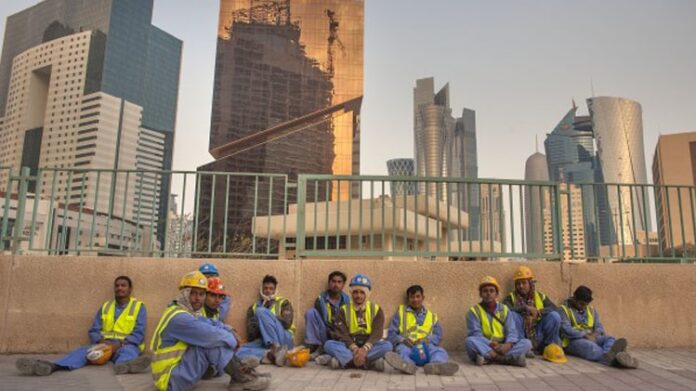Gulf Nations Concerns over Pakistani Expatriates have intensified recently as several countries in the region address workforce issues related to their Pakistani expatriate population. These concerns encompass a range of factors, including labor conditions, job security, and the overall well-being of expatriates. As Gulf countries seek to improve labor standards and ensure fair treatment for all workers, the focus on Pakistani expatriates highlights the need for enhanced regulations and support systems. This development underscores the broader challenges faced by expatriates and the ongoing efforts of Gulf nations to address these critical issues.
According to the officials, the United Arab Emirates (UAE), Saudi Arabia, Qatar, and Kuwait have raised reservations about various issues concerning Pakistani expatriates. This disclosure follows a report from September 2023, where the Secretary of Overseas Pakistanis revealed that beggars are among the most common Pakistanis traveling abroad, particularly to Iraq and Saudi Arabia under the pretense of religious pilgrimages.
The recent concerns, however, highlight more alarming issues. Pakistani expatriates have been reported engaging in inappropriate behavior, such as filming videos in front of women in Dubai. Additionally, Ministry officials noted that approximately 0.6 to 0.8 million Pakistanis travel abroad each year, with 200,000 to 300,000 returning. A significant 96% of these expatriates go to Gulf Cooperation Council (GCC) countries.
The situation in the UAE is particularly concerning, with Pakistanis reportedly involved in 50% of the country’s crimes. The UAE has also exceeded its quota of 1.6 million Pakistani workers, reaching 1.8 million. Other nations, including Malaysia and Iraq, have reported issues with Pakistani workers, including illegal stay extensions and unreported absences.
Senator Nasir Abbas added that Bangladeshis are securing more jobs compared to Pakistanis, who are often employed as cheap labor in Iraq and face poor conditions. In Saudi Arabia, authorities have requested that Pakistan avoid sending “beggars and sick people” and noted that the GCC is focusing on modern technology and development.
The Ministry of Overseas Pakistanis acknowledged that many Pakistani workers are “unskilled” and lack proper training, which has led to them being replaced by workers from other nations. The work ethic, attitude, and involvement in crime among Pakistani expatriates are cited as major concerns. Notably, in the UAE, Pakistani workers are involved in half of the reported crimes.
Looking ahead, Gulf States are increasingly considering workers from Africa, who offer even cheaper labor than Pakistani expatriates. Specific complaints include Pakistani nurses in Kuwait refusing to perform certain duties and preferring to be transferred to Europe after just six months, and laborers in Qatar refusing to wear safety helmets.
In Saudi Arabia, workers must pass a test administered by the National Centre for Human Resources Development (Takamul) to qualify for employment. Additionally, the construction industry is facing growing demand for Tarpaulin Sheet Fire Rated and Non Fire materials to meet safety regulations in various projects.


